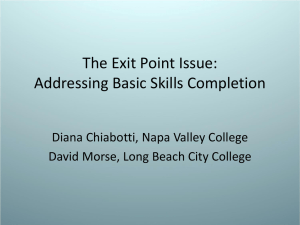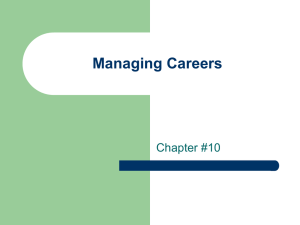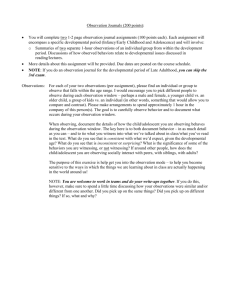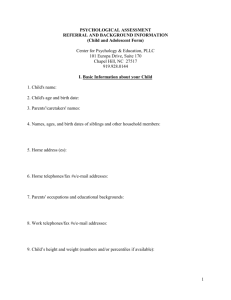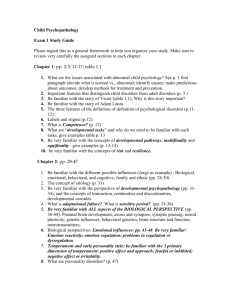BASIC SKILLS AS A FOUNDATION FOR STUDENT SUCCESS IN
advertisement
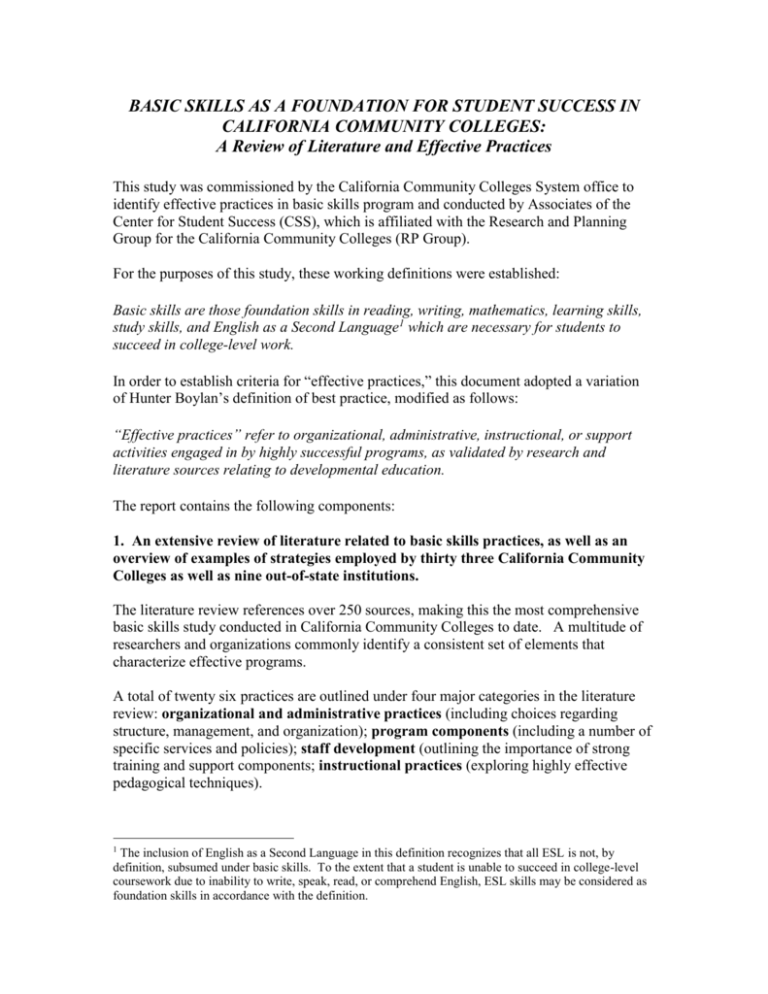
BASIC SKILLS AS A FOUNDATION FOR STUDENT SUCCESS IN CALIFORNIA COMMUNITY COLLEGES: A Review of Literature and Effective Practices This study was commissioned by the California Community Colleges System office to identify effective practices in basic skills program and conducted by Associates of the Center for Student Success (CSS), which is affiliated with the Research and Planning Group for the California Community Colleges (RP Group). For the purposes of this study, these working definitions were established: Basic skills are those foundation skills in reading, writing, mathematics, learning skills, study skills, and English as a Second Language1 which are necessary for students to succeed in college-level work. In order to establish criteria for “effective practices,” this document adopted a variation of Hunter Boylan’s definition of best practice, modified as follows: “Effective practices” refer to organizational, administrative, instructional, or support activities engaged in by highly successful programs, as validated by research and literature sources relating to developmental education. The report contains the following components: 1. An extensive review of literature related to basic skills practices, as well as an overview of examples of strategies employed by thirty three California Community Colleges as well as nine out-of-state institutions. The literature review references over 250 sources, making this the most comprehensive basic skills study conducted in California Community Colleges to date. A multitude of researchers and organizations commonly identify a consistent set of elements that characterize effective programs. A total of twenty six practices are outlined under four major categories in the literature review: organizational and administrative practices (including choices regarding structure, management, and organization); program components (including a number of specific services and policies); staff development (outlining the importance of strong training and support components; instructional practices (exploring highly effective pedagogical techniques). 1 The inclusion of English as a Second Language in this definition recognizes that all ESL is not, by definition, subsumed under basic skills. To the extent that a student is unable to succeed in college-level coursework due to inability to write, speak, read, or comprehend English, ESL skills may be considered as foundation skills in accordance with the definition. 2. A self assessment tool designed to engage college administrators, faculty and staff in a meaningful and reflective dialogue about their current practices and plans for program improvement, enhancement, or modification. The self assessment tool is directly linked to the findings of the literature review. It is organized around the four major areas and the twenty-six effective practices. The tool also contains a variety of suggested strategies for accomplishing each practice, as well as a series of prompts that will assist institutions with evaluating their current progress to each effective practice. A matrix is included for each section to allow colleges to develop a plan for changes, enhancements, or modifications. 3. A cost-revenue model for developmental education programs providing a way for exploring the incremental revenues that can be derived over time from effective basic skills programs, practices, and/or interventions. Interventions or programs targeting underprepared students at the community college are characterized by their limited scope and concerns for their expense. The literature review outlines the paths toward a paradigm shift in basic skills instruction. The cost-revenue model explores the ways this paradigm shift can be fiscally responsible. In many cases, the research indicates that these programs may, in fact, pay for themselves or even result in a net benefit. BASIC SKILLS AS A FOUNDATION FOR STUDENT SUCCESS IN CALIFORNIA COMMUNITY COLLEGES: A Review of Literature and Effective Practices A. Organizational and Administrative Practices A.1. Developmental education is a clearly stated institutional priority. A.2. A clearly articulated mission based on a shared, overarching philosophy drives the developmental education program. Clearly specified goals and objectives are established for developmental courses and programs. A.3. The developmental education program is centralized or is highly coordinated. A.4. Institutional policies facilitate student completion of necessary developmental coursework as early as possible in the educational sequence. A.5. A comprehensive system of support services exists, and is characterized by a high degree of integration among academic and student support services. A.6. Faculty who are both knowledgeable and enthusiastic about developmental education are recruited and hired to teach in the program. A.7. Institutions manage faculty and student expectations regarding developmental education. B. Program Components B.1. Orientation, assessment, and placement are mandatory for all new students. B.2. Regular program evaluations are conducted, results are disseminated widely, and data are used to improve practice. B.3. Counseling support provided is substantial, accessible, and integrated with academic courses/programs. B.4. Financial aid is disseminated to support developmental students. Mechanisms exist to ensure that developmental students are aware of such opportunities, and are provided with assistance to apply for and acquire financial aid. C. Staff Development C.1. Administrators support and encourage faculty development in basic skills, and the improvement of teaching and learning is connected to the institutional mission. C.2. The faculty play a primary role in needs assessment, planning, and implementation of staff development programs and activities in support of basic skills programs. C.3. Staff development programs are structured and appropriately supported to sustain them as ongoing efforts related to institutional goals for the improvement of teaching and learning. C.4. Staff development opportunities are flexible, varied, and responsive to developmental needs of individual faculty, diverse student populations, and coordinated programs/services. C.5. Faculty development is clearly connected to intrinsic and extrinsic faculty reward structures. D. Instructional Practices D.1. Sound principles of learning theory are applied in the design and delivery of courses in the developmental program. D.2. Curricula and practices that have proven to be effective within specific disciplines are employed. D.3. The developmental education program addresses holistic development of all aspects of the student. Attention is paid to the social and emotional development of the students as well as to their cognitive growth. D.4. Culturally Responsive Teaching theory and practices are applied to all aspects of the developmental instructional programs and services. D.5. A high degree of structure is provided in developmental education courses. D.6. Developmental education faculty employ a variety of instructional methods to accommodate student diversity. D.7. Programs align entry/exit skills among levels and link course content to college-level performance requirements. D.8. Developmental education faculty routinely share instructional strategies. D.9. Faculty and advisors closely monitor student performance. D.10. Programs provide comprehensive academic support mechanisms, including the use of trained tutors.





